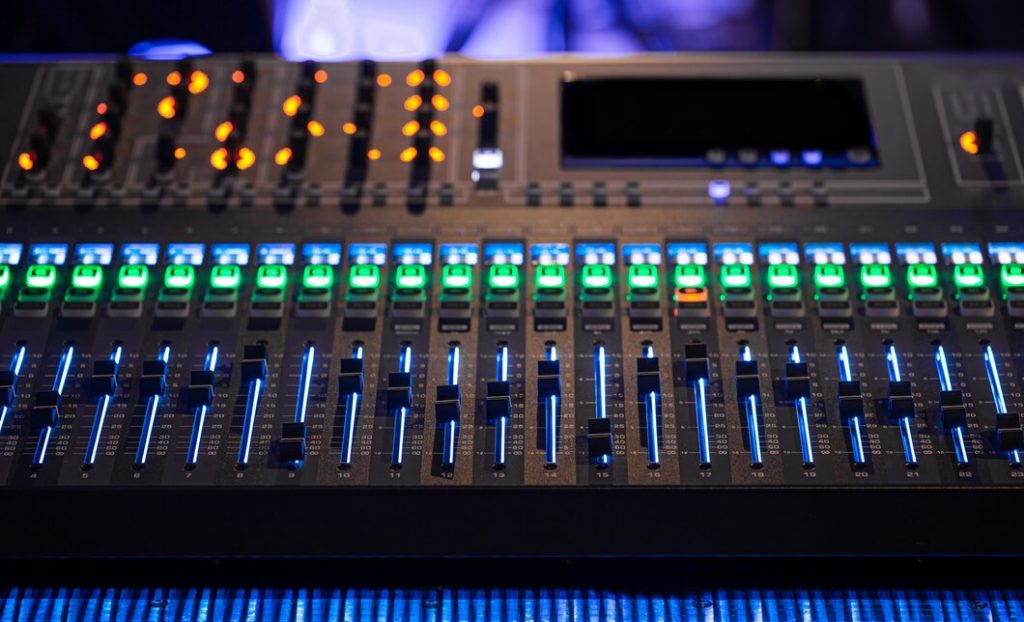Music Production is an intricate task that comprises of numerous stages, and among these stages, mixing and mastering are of utmost importance. These are the stages that breathe life into your individual tracks, making the music soar. This article delves into the role of automation in mixing and mastering, providing critical insights on their impact on music production. We are all set to embark on an enlightening mélange of music production intricacies. Let’s go ahead and get started.
What is Mixing in Music Production?
In simple terms, mixing is a technique in the music production where different sounds recorded on multiple individual tracks are balanced to create a harmonious ensemble. This is a crucial phase that comes right after the recording in the music production process. A music producer or a mixing engineer carefully integrates the components of a song into a desirable blend.
Crucial Elements in a Mixing Process
The elements of a mixing process are as dynamic as the process itself. To make sure the final output gives justice to the creativity of an artist, a mixing engineer needs to ensure the equal distribution of frequencies, the perfect balance of various sound sources, and an engrossing spatial environment.
The Utilization of Automation in Mixing
Now at this point, you may be wondering how using automation in mixing plays a significant role in the music production process.
Leveraging Automation Tools in Music Mixing
Automation helps in reducing redundant tasks and making significant modifications in real-time. Mix automation is often used to automate processes like volume adjustments or effects in real-time, for different sections of a song. With automation, the mixing engineer can provide an impressive depth to the sound, altering the feel of the entire song.
The Vital Role of Mastering in Music Production
Beyond mixing, we delve into the process of mastering. This is the final stage in a music production process, where the mixed song is further refined and polished by a mastering engineer.
The Journey from Mixing to Mastering: An Overview
Mastering is not just about loudness; it is the fine-tuning of your mix to make sure it sounds perfect on any playback system. A mastering engineer uses specialized tools and gear, like Pro Tools and Logic Pro, to ensure a consistent listening experience across all platforms.
Integrating Automation in Mastering Process
Automation serves a significant role in the mastering stage of music production, much like its role in the mixing process.
Effectiveness of Automation in Mastering
Through the automation automation process, the mastering engineer can make subtle changes in real-time that enhance the quality of a song far more efficiently. It is an effective way to make sure that the entire song is optimized for the best listening experience.
Decoding the Differences: Mixing vs Mastering
Even though mixing and mastering both are pivotal processes in music production, they serve different purposes and have distinct objectives.
A Comparative Study: Mixing and Mastering
While the role of a mixing engineer is to blend individual tracks into a smooth composition, the mastering engineer’s job is to ensure consistency and optimize the song for different platforms.
The Eyes on Final Product: Mixed and Mastered Song
A mixed and mastered song is the final version, optimized for every platform and ready to captivate every listener.
The Impact of Mixing and Mastering on Final Song Output
The impact of a well-mixed and mastered song meticulously done cannot be understated. It ensures a balanced and cohesive musical experience, keeping the listener engaged from the first note to the last.

Practical Applications of Mixing and Mastering
Mixing and mastering are not just processes in a music studio.
Getting Started with Mixing and Mastering: Step by Step Guide
Whether you’re establishing a home studio or uprooting your professional set-up, the first step is always to understand the importance of mixing and mastering in the music production process.
Understanding Time-frames: Mixing and Mastering
It’s tempting to rush through the mixing and mastering stages of music production.
Estimating Time Required for Mixing and Mastering
One common misconception is that mixing and mastering can be achieved rapidly. However, to ensure an impressive output, it is essential to invest a reasonable amount of time into these stages.
Despite the advancements and innovations in the music industry, the core elements of music production continue to revolve around the processes of mixing and mastering. They remain as the backbone of music production, truly transforming the raw music into a masterpiece. By incorporating automation tools in these processes, music producers can create outputs that not only meet but exceed the listening expectations of today’s discerning audience.
Remember, the goal at the end of the music production is not about reaching a point where the song is ready to be released. It’s about molding the song until it’s sequenced, balanced, and polished so well that the listener doesn’t just hear it, they feel it.

